The Murder of Jeff Rowland
A beloved fourth-grade teacher from Charles Town, West Virginia, was found murdered in a popular hiking spot in 2002. Despite investigations and community efforts, his case remains unsolved. Jeff Rowland's life, marked by dedication and compassion, inspires calls for justice.
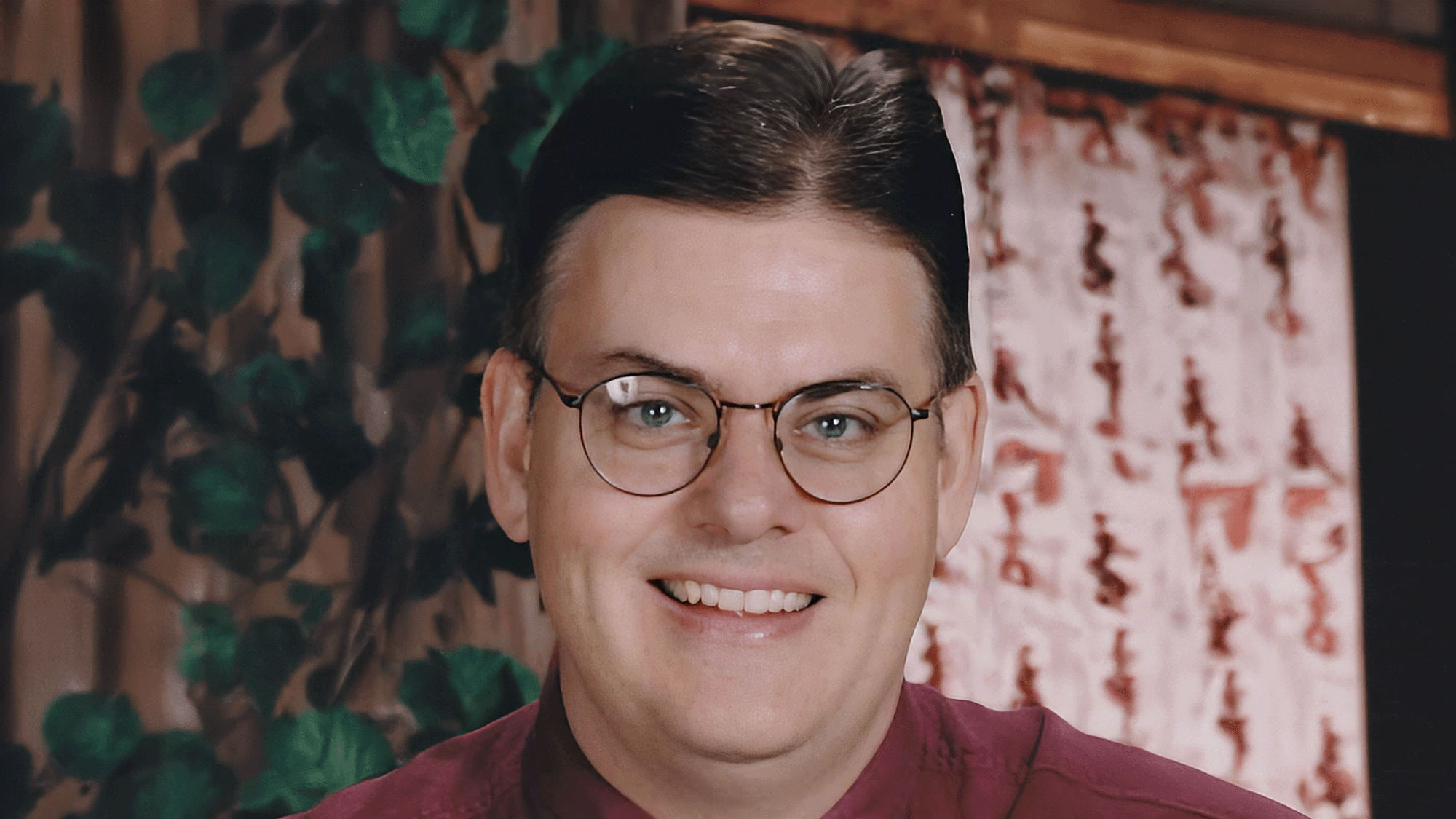
In investigating this case, I had hoped to uncover new information through an information request to the Washington County Sheriff’s Office. Unlike the case of Amelia Wilson, where the files had been lost to time, this case was just over two decades old, and I was excited about the prospect of shedding new light on it. However, their response was financially prohibitive. Writing for a free publication, I could not fund the excessive cost presented by the Sheriff. As a last-ditch effort, I started a GoFundMe campaign, hoping to match the public outcry for justice with financial support. Unfortunately, there was no public appetite to fund this quest for justice. It seems we must be content with simply telling Jeff’s story, which I believe is still important.
Since its initial publication, this article has appeared as a two-part special (part 1 and part 2) in The Journal newspaper of Martinsburg, West Virginia, and has also become the subject of a podcast by Last Seen Alive.
The peaceful morning along the C&O Canal towpath in Sandy Hook, Maryland, was shattered on a crisp autumn day in 2002. A jogger stumbled upon a grim discovery: the body of Jeff Rowland, a beloved fourth-grade teacher from Charles Town, West Virginia, lying face down near the path. As details emerged, it became clear that Rowland's death was no accident. A gunshot wound to the neck indicated a brutal murder, and investigators quickly realized that solving the case would require community cooperation.
Despite more than two decades having passed, the mystery surrounding Jeff Rowland's murder remains unsolved, leaving a haunting void for those who knew and loved him. Delving into the life of Jeff Rowland, the circumstances of his tragic end, and the enduring impact on his community reveals a story of loss and the quest for justice. This account explores the complexities of his life, the investigation that followed, and the many unanswered questions that still exist to this day.
The Discovery
On the morning of November 15, 2002, a routine jog along the C&O Canal towpath in Sandy Hook took a horrifying turn. As a local jogger approached a secluded section of the path, he noticed what appeared to be a bundle of clothing or a bedroll lying near the embankment. Upon closer inspection, he realized it was the lifeless body of a man. Panicked and shaken, the jogger ran to a nearby house and urgently requested the occupant to call 911.

Authorities quickly arrived at the scene and identified the body as that of Jeff Rowland, a fourth-grade teacher from Charles Town. Rowland's body was found face down, with a noticeable head injury that later proved to be a fatal gunshot wound to the neck. The discovery of his body sent shockwaves through the small community where Rowland was well-known and respected.
Despite the crime occurring on National Park Service property, the Washington County Sheriff's Office took the lead in the investigation. They worked closely with park rangers and local law enforcement. The investigation into Rowland's murder began with a community on edge, grappling with the unsettling realization that someone they knew and trusted had met a violent end.
Jeff Rowland’s Life
Jeffrey Lewis “Jeff” Rowland, born on April 25, 1959, in West Virginia, was characterized by dedication, kindness, and an unwavering commitment to his community. Residing on Belvedere Drive in Charles Town, Rowland lived with and cared for his aging parents, Francis and Violet Rowland.
Rowland had a passion for education and a love for children. For 22 years, he served as a fourth-grade teacher at Wright-Denny Elementary School, where he was an educator, mentor, and friend to countless students. His dedication extended beyond the classroom; he was the secretary for the school's faculty senate, underscoring his commitment to improving the educational environment for students and colleagues.
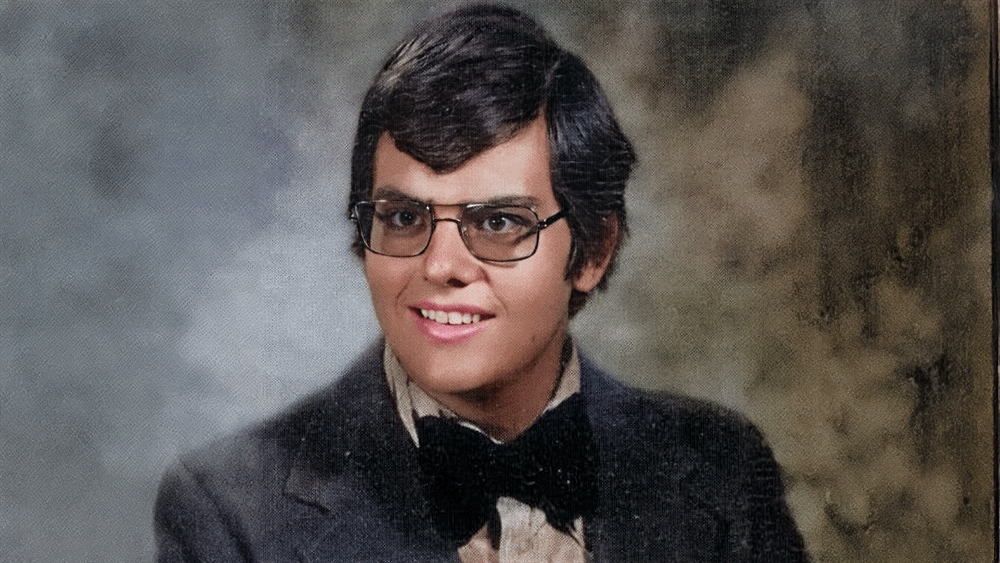
Rowland graduated from nearby Shepherd University, where he obtained his teaching credentials. He was an active Asbury United Methodist Church member, participating in the choir and various church events, bringing joy and support to his fellow congregants. Additionally, he worked as a Weight Watchers instructor, helping others achieve their health goals with the same dedication he showed in his teaching.
In addition to his teaching and church activities, Rowland was an avid bowler and a member of the Friday Night Bowling League at Shenandoah Lanes. His interests were diverse, reflecting a well-rounded individual who found joy in various aspects of life.
Though largely private, Rowland's personal life was marked by his relationships and the quiet struggles he faced. According to a cousin who spoke on the condition of anonymity, Rowland was a closeted homosexual man. At a time when homosexuality was less accepted than it is today, this aspect of his life was likely not a well-kept secret among those close to him. The parking lot where he was eventually found was known to be a meeting spot for men, suggesting that his sexual orientation may have played a role in the tragic events leading to his death.
Rowland faced challenges, but he was known for being compassionate, dedicated, and resilient. He made significant contributions to his community as an educator and caring neighbor. As the investigation into his murder progressed, the loss of this cherished man became even more significant, underscoring the need for justice and closure for a life that ended too soon.
The Investigation
The crime scene along the C&O Canal towpath presented investigators with a grim and puzzling case. Rowland’s body, discovered face down with a fatal gunshot wound to the neck, was the starting point of an investigation that initially revealed few public clues. Authorities swiftly secured the area and began gathering evidence. Due to the lack of in-house forensic capabilities, the sheriff enlisted the expertise of the Hagerstown Police Department to aid in the investigation.
Initial investigations at the scene led police to a blue Dodge minivan with West Virginia license plates parked on Keep Tryst Road, not far from where Rowland's body was discovered. It’s unclear whether this van belonged to Rowland. The van had a shattered window, suggesting foul play. Residents reported that the van was a familiar sight in the area, known as a clandestine meeting spot for men. This added a layer of complexity to the investigation, hinting at possible motives rooted in the area's reputation.
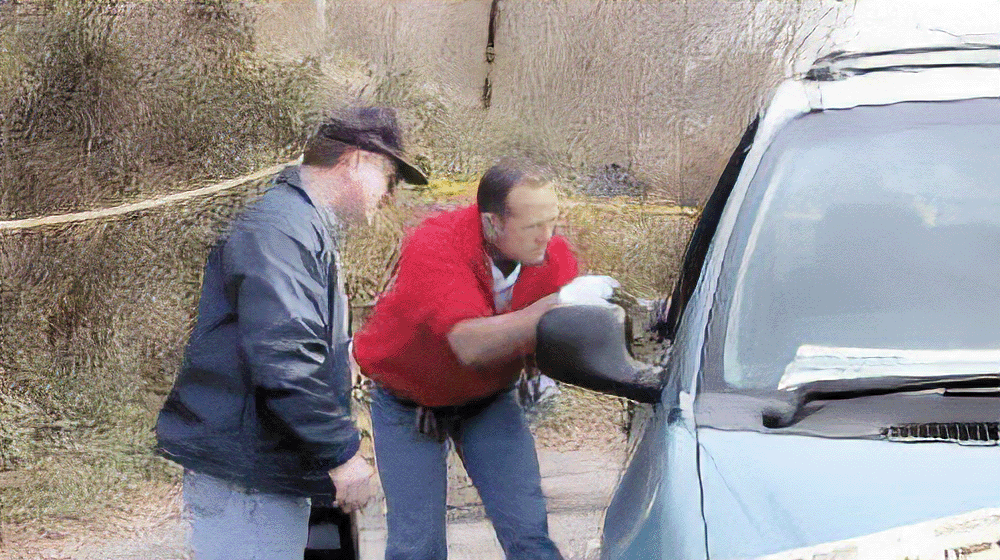
Two evidence collection technicians from the Hagerstown Police Department meticulously photographed the scene, took measurements, and dusted the van for fingerprints. After deputies obtained a search warrant, the van was towed for further examination.
Nancy Nicolosi, a resident near the towpath, mentioned in a Frederick News-Post article dated Saturday, November 16, 2002, that the minivan had been a regular presence in the area for nearly a decade, often seen in the secluded spot notorious for gay solicitation. Another local resident, Jim Downing, echoed these concerns in the same article, noting that the towpath had become a gathering place for "undesirable characters," deterring locals from using the popular hiking and biking spot. Two decades ago, sentiments towards such activities were markedly different, with less acceptance and more stigma attached to homosexuality, often pushing these activities to the fringe.
According to reports at the time, Rowland was last seen alive on Thursday, the day before his body was found, shortly after 6 p.m. at a 7-Eleven on Route 340 at Jefferson Avenue in Charles Town. A witness believed Rowland was waiting for someone at the convenience store. Investigators tried to determine Rowland's movements between when he left school on Thursday at 4:30 p.m. and when he was killed later that night. The results of this investigation were never made public.
John Allen Dailey Jr. emerged as a significant figure in the investigation, a man with a complicated past. There were whispers of a possible sexual relationship between Rowland and Dailey. Born on July 18, 1971, in Jefferson County, West Virginia, Dailey had a troubled history and was suspected of having a motive tied to financial and personal complications with Rowland. According to a document obtained from the Jefferson County Sheriff’s Office, in 2006 Ronald Lee Coulter III told his probation officer that Dailey had expressed intentions to kill Rowland, allegedly because Rowland had included Dailey in his will. Whether Dailey was listed as a beneficiary in Rowland’s will remains unclear. Whatever information Dailey had was lost forever in 2007 when he died in Reno, Nevada, due to liver disease, likely attributed to complications from drug use.
While the Washington County Sheriff's Office led the investigation, they likely still required extensive collaboration with West Virginia law enforcement. Despite these efforts, the case remained unsolved, with numerous unanswered questions.
In 2008, over five years after Rowland’s murder, Jefferson County Sheriff Everett "Ed" Boober made a public plea for information through a letter to the editor in the February 21, 2008, edition of the Spirit of Jefferson Farmer's Advocate, Charles Town’s newspaper. Charles Town, Rowland’s hometown and residence, is in Jefferson County. While the investigation wasn’t under the jurisdiction of Jefferson County, many key figures, including the perpetrator, were likely residents of Jefferson County. In a heartfelt address, Sheriff Boober urged anyone knowledgeable about the case to come forward, emphasizing the need for community support to bring justice for Rowland. He highlighted the extensive efforts made by law enforcement and expressed frustration over the lack of cooperation from those who might hold critical information. The plea underscored the importance of collective action in solving the case and provided a means for submitting anonymous tips.
The passage of time and the complexities of the case continued to hinder progress, leaving uncertainty over the community and those who sought justice for Rowland. Despite the efforts of the Washington County Sheriff's Office and the broader law enforcement community, the case remains unresolved. The lingering questions and the complexity of the investigation continue to haunt those who seek justice for Jeff Rowland, a dedicated teacher whose life was tragically cut short.
Community Reactions
Jeff Rowland's murder sent shockwaves through the close-knit community of Charles Town, West Virginia. As news of his death spread, reactions poured in from students, colleagues, and residents who had known and respected him. Rowland was not just a teacher but a beloved figure whose kindness and dedication had touched many lives.
The Facebook group "Remember Charles Town When..." features many heartfelt recollections of Rowland. Students who had passed through his classroom were among the most affected. Elizabeth Carol, who had Rowland as a teacher the year before his murder, remembered him fondly and expressed deep sadness over his untimely death. Danielle Rinaldi noted that both her daughters had Rowland as a teacher, and his death profoundly impacted their family. Former students like Samantha Elizabeth and Tamara Jeffries recalled Rowland's supportive nature and positive influence on their early education.
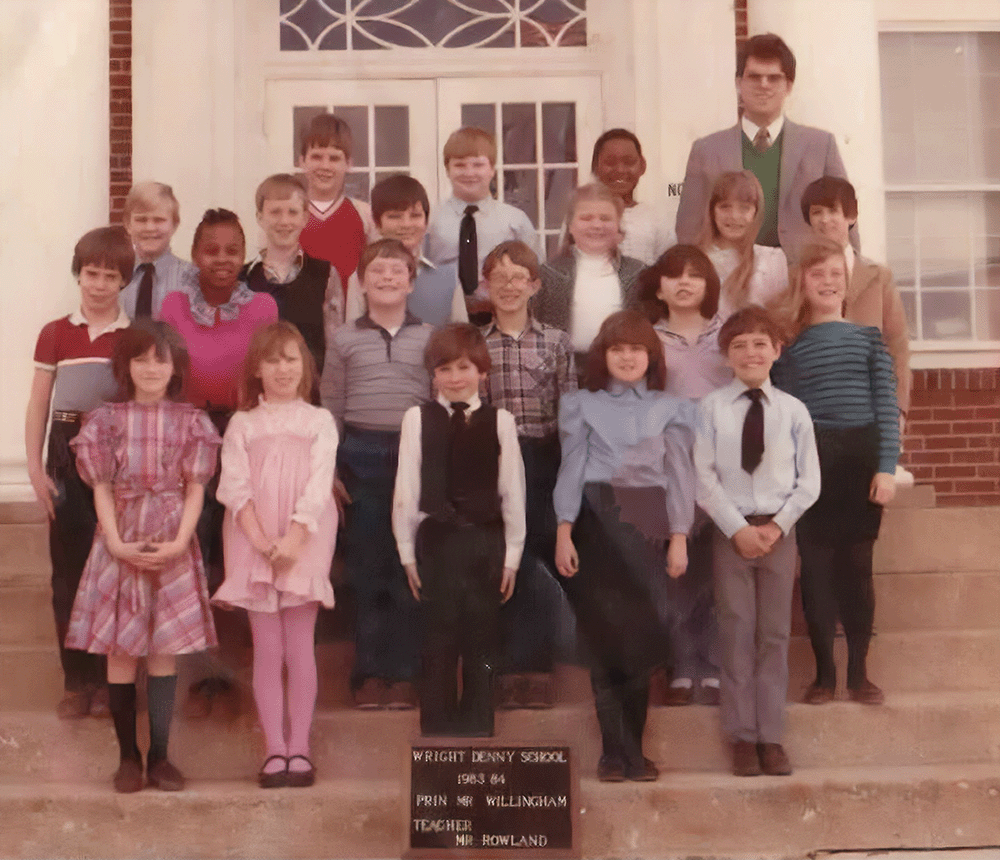
Ron Garza fondly remembered Rowland's generosity, recalling canned vegetables he had received from him. Diane Dailey McDonough, who worked with Rowland at the Cliffside Inn, remembered him as a kind and helpful colleague. Mary Beth Kilmer, who grew up near Rowland, described him as sweet and caring.
These shared memories highlight the deep love and respect the community had for Rowland, underscoring his significant impact on their lives.
A memorial service in Rowland's honor presumably saw an outpouring of grief and tributes. In response to his tragic death, the community established the Jeffrey Rowland Memorial Scholarship Fund. According to a 2003 article in the Spirit of Jefferson Farmer's Advocate, nearly $300 was initially raised for the fund. The fund is still active and currently managed by Write-Denny Elementary School.
Despite the years that have passed, the call for justice remains strong. The community's response to Jeff Rowland's murder highlights not only the profound impact he had on those around him but also the collective desire to see justice served for a life cut tragically short.
Potential Motive
Jeff Rowland's life as a closeted homosexual man in a small rural community undoubtedly added layers of complexity to both his personal life and the investigation into his murder. He was not openly gay, which posed a significant challenge given the social climate of the early 2000s. At that time, acceptance of homosexuality was far less widespread, and individuals often faced significant stigma and discrimination.
The parking lot where Rowland was found was known locally as a meeting spot for men seeking same-sex encounters. The secrecy surrounding such activities, driven by societal pressures, likely pushed these interactions to secluded and potentially dangerous locations.
The possibility that Rowland was targeted because of his sexual orientation cannot be overlooked. Hate crimes against LGBTQ individuals were a harsh reality of the times. Investigators may have considered whether Rowland's murder was motivated by prejudice or if he had been lured into a trap because of his sexual identity. This angle of the investigation was sensitive and required navigating societal biases and prejudices. It's also possible that the murder of a gay man slipped to the bottom of the priority list.
Rowland's life as a closeted gay man, coupled with the dangerous environment of secretive meeting spots and his responsibilities as a male elementary school teacher, paints a picture of a man caught in a web of societal and personal challenges. These factors complicated the investigation and highlighted the broader issues faced by LGBTQ individuals at the time.
Unresolved Questions
Jeff Rowland’s murder remains a mystery, with many unresolved questions still lingering. The status of the investigation reflects the challenges and complexities law enforcement has faced over the years. Despite numerous efforts, the case remains unsolved.
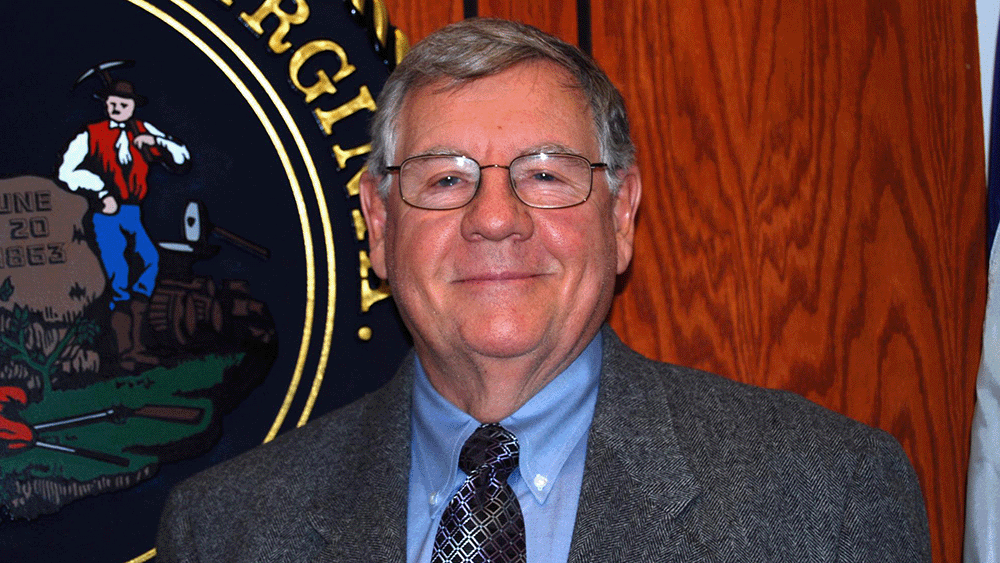
Sheriff Boober was vocal about the need for community support in solving the case. However, he served the maximum term allowed for sheriffs in West Virginia and left the office in 2008. Sadly, he passed away in 2021. It’s possible that he took ownership of this case because it occurred during his tenure as sheriff. Subsequent sheriffs have not made similar pleas for information.
Community members have also voiced their concerns and frustrations. In the Facebook group "Remember Charles Town When...," Tammy Hicks Bryant expressed worry about the case going silent, emphasizing the need for continued attention and action. Meg Gavin Bowman shared her frustration over the lack of progress, lamenting the unsolved nature of the case that has lingered for so many years. Ricardo Montelesh, a former student, expressed hope for justice, reflecting the sentiments of many who were touched by Rowland's life and saddened by his untimely death.
While researching this case, a Maryland Public Information Act request was submitted to the Washington County Sheriff, seeking all available information. The request aimed to obtain police reports, investigation notes, correspondence, and any other relevant documents that could shed light on the circumstances surrounding Rowland’s murder. The goal was to uncover new leads, reassess existing evidence, and bring fresh perspectives to a case that had long been stagnant. Such comprehensive requests are often crucial in cold cases, as they can reveal overlooked details or procedural missteps that might lead to breakthroughs.
Unfortunately, the Washington County Sheriff's Office stated that the case was still considered an “active investigation.” They estimated that fulfilling the request would require at least 65 hours of labor, with costs exceeding $4,000, to redact sensitive information. This high cost could potentially discourage further information requests. Similar issues have been reported in Maryland. For example, in 2022, the Washington Post highlighted cases where public interest groups faced exorbitant fees for accessing police records. These challenges raise questions about whether the high costs are intended to deter requests and whether the case's status as active is genuinely reflective of ongoing investigative efforts.
To aid the investigation, a GoFundMe campaign was established to raise the funds needed for the information request to Washington County. Despite widespread sharing on social media and apparent interest in solving the case, the campaign failed to receive a single donation. This lack of financial support suggested a gap between expressed interest and tangible action, highlighting a potential disconnect within the community. Sadly, no one from Rowland’s immediate family survives; his father passed away in 2004, and his mother and sister, Faye Rodgers, both passed in 2012. Jeff Rowland now has no advocates to seek justice for him today.
A Call for Justice
Jeff Rowland’s murder remains an unsolved mystery, leaving a void in the hearts of those who knew and loved him. The search for answers continues despite the passage of more than two decades. Rowland was a beloved fourth-grade teacher and a dedicated community member whose life was cut short. His murder has left a lasting scar on his community, one that can only be healed by uncovering the truth and bringing his killer to justice. The complexities of his life add layers of both personal and societal challenges that need to be understood and addressed.
The investigation into Rowland's murder has faced numerous obstacles and remains unresolved. The failed fundraising campaign highlights a troubling disconnect between expressed interest and actionable support within the community, a phenomenon often seen online. With no immediate family members left to advocate for him, it falls upon those who knew him, respected him, and believe in justice to step forward and contribute to the ongoing search for answers.
Sheriff Boober's heartfelt pleas for information must not be forgotten. The community must rally together, bridging the gap between interest and action, to ensure that Rowland's story does not fade into obscurity. This is not just a call to solve a crime—it is a call to honor the life of a man who gave so much to his community and whose legacy deserves to be remembered with justice and dignity. Anyone with information about the case is urged to come forward, no matter how small or seemingly insignificant. Justice for Jeff Rowland means providing closure for those haunted by this tragedy for far too long and ensuring that his life is remembered not just for how it ended but for the lasting positive impact he had on those around him.
If you have any information regarding the murder of Jeff Rowland, you are encouraged to contact the Washington County Sheriff's Office at (240) 313-2100. No matter how small, every detail could be crucial in solving this case. Please help bring justice to Jeff Rowland and closure to those who knew and loved him.
